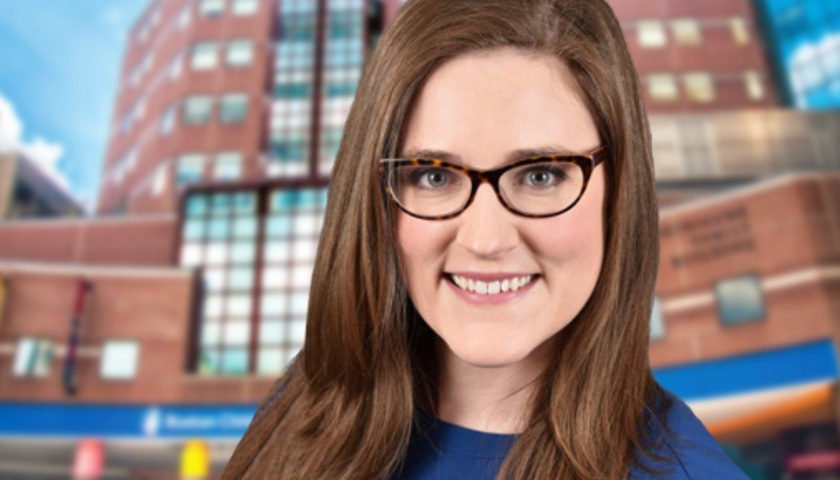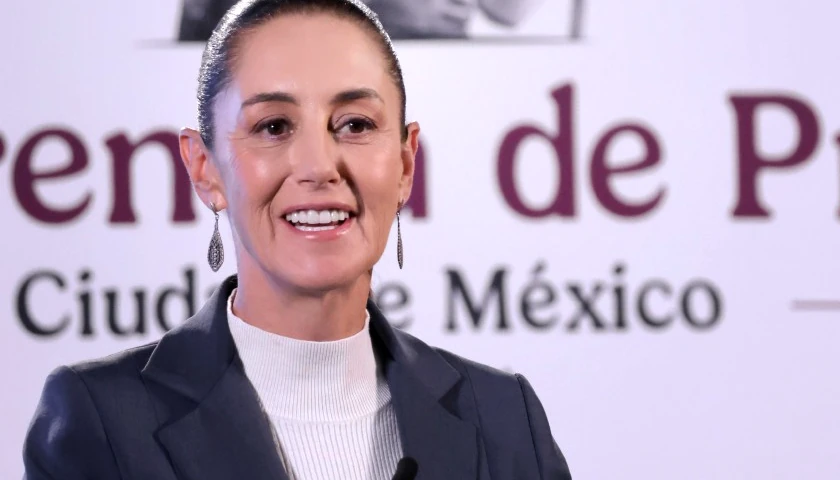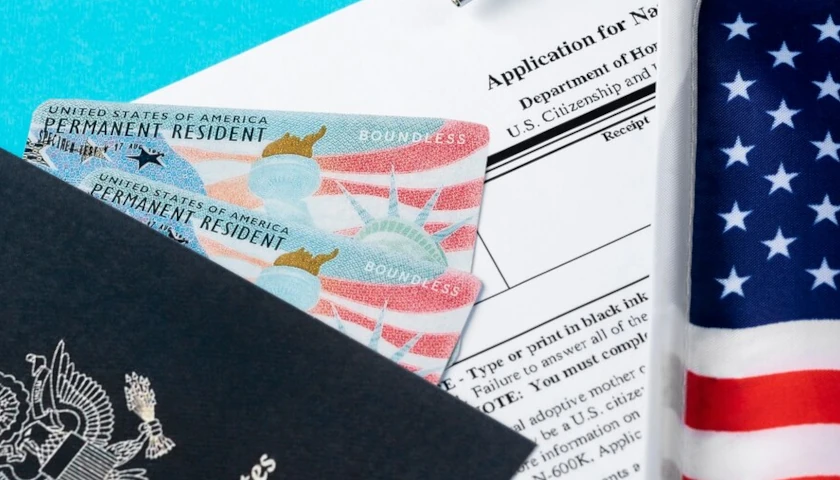A psychologist at Boston Children’s Hospital’s Gender Multispecialty Service (GeMS) states in a video titled “Caring for Young Transgender Kids” that many children know they are transgender “as early as seemingly from the womb.”
“A good portion of children do know as early as seemingly from the womb,” says Kerry McGregor, PsyD. in a Boston Children’s Hospital video from May 2021. “And they will usually express their gender identity as very young children, some as soon as they can talk. They may say phrases such as ‘I’m a girl,’ or ‘I’m a boy,’ or ‘I’m going to be a woman,’ ‘I’m going to be a mom.’”
https://www.youtube.com/watch?v=17Cw32iQb-U
“Kids know very, very early,” McGregor states, adding she sees children in the Boston Children’s Hospital GeMS clinic as young as 2 or 3 years old, and up to age 9.
She advises parents to be supportive of their very young children, who claim to have a gender that is incompatible with their biological sex, so they have “the space” to “explore their gender.”
In another Boston Children’s Hospital GeMS video from May 2021, Jeremi Carswell, M.D., director of GeMS, states some parents say “they knew from the minute they were born, practically” that their children were transgender.
https://www.youtube.com/watch?v=rn-T6MA473o
Carswell says among the telltale signs a child is transgender is “refusing to get a haircut,” “refusing to stand to urinate,” or “playing with opposite gender toys.”
Twitter user Billboard Chris, who exposes gender ideology, and Libs of TikTok tweeted about the Boston Children’s Hospital GeMS videos:
Parents, “sometimes you might not understand” but “just be supportive,”says psychologist Kerry McGregor.
You don’t need to understand what’s going on as Boston Children’s Hospital blocks your child’s puberty, cuts off body parts, and sterilizes them.
— Billboard Chris 🇨🇦🇺🇸 (@BillboardChris) August 14, 2022
Boston Children’s Hospital (@BostonChildrens) says that toddlers can know they are transgender. Some signs are refusing a haircut or playing with the opposite gender toys. pic.twitter.com/bEoWt1wI1l
— Libs of TikTok (@libsoftiktok) August 14, 2022
In yet another video, Boston Children’s Hospital and GeMS touted its “gender affirming hysterectomies” for young girls. Apparently, after being outed for providing the surgery to young girls “of at least 17 years old,” GeMS changed its eligibility age to 18.
The Star News Network reached out to Boston Children’s Hospital for comment on the change in the age eligibility for a “gender affirming hysterectomy,” and is awaiting a response.
The @BostonChildrens Hospital has now changed their website to say they don’t do vaginoplasties on minors.
They are liars and they are trying to hide the evidence. Too late. https://t.co/Ht6bTi3et2
— Billboard Chris 🇨🇦🇺🇸 (@BillboardChris) August 14, 2022
Thanks @BillboardChris for providing the screenshots before and after the story broke. pic.twitter.com/N99TVIHG1O
— Christina Buttons (@buttonslives) August 15, 2022
Psychologist McGregor states in her video that “the biggest piece of advice I give parents who are coming through the gender clinic at Boston Children’s Hospital is to just be supportive.”
“Sometimes you might not understand, you feel like you don’t know the terms, so you don’t get exactly what the child means when they say they might be this gender,” she explains.
McGregor then pushes the common narrative of the transgender industry that asserts parents’ failure to affirm a child’s gender transition can lead to “negative mental health effects,” such as “depression, suicidality, anxiety, that we worry about for our gender diverse kids and young adults.”
“So that support from a parent is one of the best protective factors,” she reiterates.
Boston Children’s Hospital President and CEO Kevin B. Churchwell, M.D., has a political message for parents at the GeMS website:
You may be aware that in states across the country there is a recent increase in proposed legislation aiming to restrict the rights of transgender and gender diverse youth. Many of these bills aim to restrict access to medical care and limit children and adolescents who identify as gender diverse from participation in sports.
…
At Boston Children’s, we are proud to be home to the first pediatric and adolescent transgender health program in the United States, the Gender Multispecialty Service (GeMS), which has cared for more than 1,000 families to date. We believe in a gender-affirmative model of care, which supports transgender and gender diverse youth in the gender in which they identify. This is a standard of care grounded in scientific evidence, demonstrating its benefits to the health and well-being of transgender and gender diverse youth. In addition to supporting our patients and families, we stand with our colleagues who may identify as transgender or gender diverse, those who provide care to transgender youth and who are allies to the transgender community.
Interestingly, Boston Children’s Hospital provides a list of “external resources” for parents of children with gender dysphoria, most of which are LGBTQ activist groups. A disclaimer states that neither Boston Children’s Hospital nor the GeMS program “unreservedly endorses all of the information found at the external websites,” but that they are provided “as a resource.”
Among the activist group “resources” listed is Gay, Lesbian Advocate and Defenders (GLAD), Gay, Lesbian and Straight Education Network (GLSEN), Gender Spectrum, Parents, Families, and Friends of Lesbians and Gays (PFLAG), the Human Rights’ Campaign’s “Welcoming Schools” project that promotes gender diversity in elementary schools, and the Trevor Project, which claims to provide crisis and suicide intervention.
The Trevor Project was recently cited as well by transgender U.S. Assistant Secretary for Health Dr. Rachel (born Richard) Levine in an interview with at National Public Radio (NPR).
The Biden top health official claimed there is “no argument among medical professionals – pediatricians, pediatric endocrinologists, adolescent medicine physicians, adolescent psychiatrists, psychologists, et cetera – about the value and the importance of gender-affirming care,” which includes puberty-blocking drugs, cross-sex hormones, and surgeries, such as elective double mastectomies, for young people.
“Trans youth in particular are being hounded in public and driven to deaths of despair at an alarming rate,” Levine told NPR “in prepared remarks” at the end of April.
Condemning state legislation intended to curb child gender transition, Levine named The Trevor Project’s “research” for statistics:
Fifty-two percent of all transgender and nonbinary young people in the U.S. seriously contemplated killing themselves in 2020. Think about how many of them thought it was better to die than to put up with any more harassment, scapegoating and intentional abuse.
A recent study, however, led by Dr. Stephen B. Levine of the Department of Psychiatry at Case Western University, found the informed consent process engaged in by transgender industry clinicians appears to be heavily influenced by LGBTQ activists who push the narrative that parents’ failure to immediately affirm their child’s claim of a new gender identity could likely result in his or her suicide.
In the study published in the Journal of Sex & Marital Therapy, Levine and his colleagues state that what is known as “gender-affirmative care,” i.e., social, medical, and surgical interventions in response to gender dysphoria, is “still based on very low-quality evidence.”
“The many risks of these interventions, including medicalizing a temporary adolescent identity, have come into a clearer focus through an awareness of detransitioners,” they assert, adding that while the lack of high-quality evidence for the success of these interventions should demand a comprehensive informed consent about their “risks and long-term outcomes,” the process is restricted by “erroneous professional assumptions; poor quality of the initial evaluations; and inaccurate and incomplete information shared with patients and their parents.”
The Trevor Project’s “research,” and that conducted by others often cited by activists, “frequently conflates suicidal thoughts and non-suicidal self-harm with serious suicide attempts and completed suicides,” Levine and his colleagues also observe, adding:
Until recently, little was known about the actual rate of suicide of trans-identified youth. However, a recent analysis of data from the biggest pediatric gender clinic in the world, the UK’s Tavistock, found the rate of completed youth suicides to be 0.03% over a 10-year period, which translates into the annual rate of 13 per 100,000 (Biggs, 2022).
“While this rate is significantly elevated compared to the general population of teens, it is far from the epidemic of trans suicides portrayed by the media,” Levine and colleagues wrote.
– – –
Susan Berry, PhD, is national education editor at The Star News Network. Email tips to [email protected].
Photo “Kerry McGregor” by Boston Children’s Hospital. Background Photo “Boston Children’s Hospital” by Boston Children’s Hospital.









Transgender surgery and drugs should not be given until the person at least 21 years of age when the person is old enough to understand what the ramifications of a decision to change their sex are long term. I was a tomboy when I was young I would rather play with the boys then with dolls but I never wanted to be a boy. I had trouble understanding who I really was for many years but finally found the truth that I liked being a girl. If I had ran afoul of this gender Identity crap I might have gotten miss guided information and direction. Leave the children alone and let them figure it out on their own. Quit pushing the ideas of change to young children.
This alleged “psychologist” is more like a psycho. Children in the womb know they are trans gender? That is just nuts. This woman and Boston Childrens Hospital shouldn’t be allowed to see or touch a child. I wouldn’t even let them see an adult. This WOKE society has just jumped off the deep end into idiocy. A large percentage of children who undergo a sex change at an early age end up regretting it as adults. Why would anyone mutilate a child’s body at any age during their youth? These people
are sick.
Just to lay it out, I am trans, MTF post op, been there done that. I went through the process as an Adult. Is it true I knew I was “different” as a child, sure. Do I wish I could have processed this at a younger age then I personally did? Certainly. HOWEVER, here some insight into the real process the trans-activist community refuses to admit or discuss:
My first 3 therapist, were after 1 session already pressuring me to get on HRT, start the path, social transitioning. No challenging me on the deeper issues, they didn’t even seem to care about that. One even told me “If you think you might you are so why delay?”
I found a therapist and spent 2 years addressing all the reality around my situation, my personal mental health. Trauma in the past, is this really who I am, the works before I started HRT.
The reason I bring this up, how many 2 years old, 8 year old, 12 year old, 15 year old… how many children are going to have there wherewithal to realize that the “expert” is pushing them down a path instead of addressing their real issues? Also, 2 years old, really? Disgusting.
If someone is trans, they deserve the help, respect and love needed to be their best true self. However, to ensure that proper, life changing decisions are being made for the best reasons… parents, kids… if you meet a therapist pushing you to transition, RUN AWAY. They don’t care about you.
Boston Hospital is a LGBT hospital and has been for years. The homosexuals have literally been pushing their agenda in Boston for years. A doctor who said no to transgenderism was fired and when he went to court the damn judge agreed with the hospital. They even had the city govt back LGBT up when they demanded to be in St Patrick’s parade. Listen, St. Patrick was for women by starting up the original nunneries where women who were married for politics or for class position went for their own safety from their husbands. St. Patrick made agreements with husbands to let their legal wife and children, if the husbands agreed to the children come to live in the church buildings for women and children, that the husband could keep his mistress with no complaining by the church. LGBT missions of replacing themselves with women’s children has nothing to do with St.Patrick’s mission. LGBT hates women and wants to get rid of them so LGBT can have no competition for men. Why do you think LGBT demanded transgender men in the beginning of their transgender movement demanded that boys had to be allowed in girl’s bathrooms and locker rooms taking away female’s rights to privacy and the beginning of control over women telling them girls want to be males. LGBT people are just showing their wish to get women out of their way and hurting them by taking away their ability to have children which homosexuals can’t do when women as adults realize they do want children. For the few women who do not children, they don’t need to destroy their bodies, have the baby and give it to some woman who physically can’t have children. No matter what, LGBT causes pain to women as kids becoming women start realizing what was forced on them. Someone put the idea in their heads that they had to be men if they just looked at a man.
Thank you for admitting that the “fetus” is a living thinking human being and entitled to all rights of an American citizen. But more fitting is the fact that adolescents often think they are superman, wonder woman, king, princess, a dog, chicken, he man, etc. This article is nothing short of forced indoctrination into falsehood.
Mis-gendered children at such a young age are made that way by their parents. We seldom know at what point these parents start their brain washing for their own sick reasons. That’s true child abuse and should be treated legally as such.
The reputation of Boston Children’s Hospital has suffered a serious blow. They employ this clown as a “gender psychologist”. What a load of baloney she, and by extension, the hospital are foisting on us. It calls into question everything the hospital does to treat patients for anything since it appears they will employ anyone.
So you are admitting children in the womb are viable people that know what sex they are before birth?
You sick and demented morons! “Trans” is NOT a state!
It is a barbaric PROCESS that one can choose to go through when they suffer form gender dysphoria.
The damage that you’re doing is incalculable.